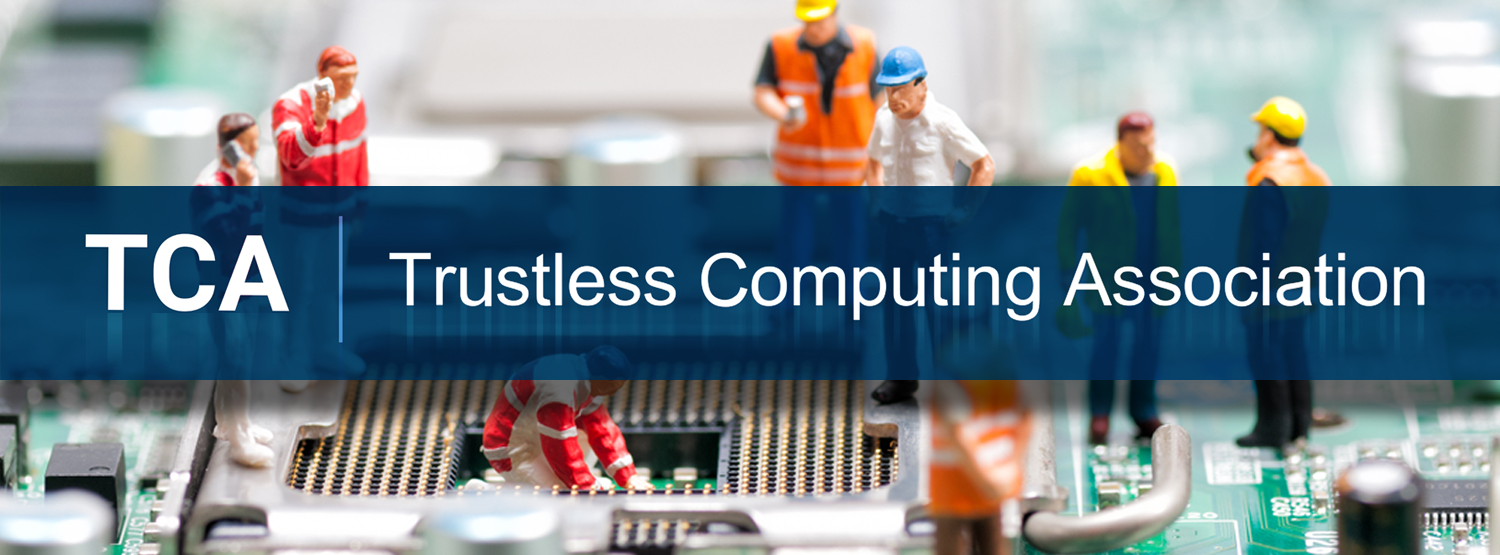Building the Trustless Computing Certification Body
Trustless Computing Association

Session 228
A new standards setting and certification body for ultra-secure human computing and then AI.
We will discuss the prospects of a new Trustless Computing Certification Body - within the processes of ITU and EU Cybersecurity Certification Framework - to achieve ultra-high levels of assurance for human communications and transactions; while solidly enabling legitimate lawful access - and a compliant open computing base and ecosystem, Seevik Net, that radically-exceeds the state-of-the-art in trustworthiness of critical human computing IT systems, while concurrently solidly enabling legitimate lawful access.
The Problem. Even the most secure IT certifications and technologies available today offer levels of trustworthiness – and trustworthiness measurability – that are radically lower than what is required by many narrow or wide-market critical societal use cases. This problem extends to critical AI systems, which must rely on such IT for their most critical “root-of-trust” sub-systems.
The Solution. All and every software, hardware and processes that are critically involved in an IT service provisioning or life-cycle – from CPU design to fabrication, from hosting room access to standard setting – are subject to extreme verification relative to complexity, or to extremely resilient cyber-social oversight, based on offline citizen-witness or citizen-jury processes. We re-conceptualize the cybersecurity of any given critical IT system/experience as the by-product of the intrinsic resilience, accountability, and competency of organizational and cyber-social processes.
Paradigms. Its claim for substantially or radically higher levels of IT trustworthiness is rooted primarily on (1) extreme levels of ethical security-review in relation to complexity of all critical components and processes, (2) the wide utilization of citizen-witness and citizen-jury oversight processes throughout the service life-cycle, and, most critically, (3) a governance model ensuring with extreme levels of citizen accountability, altruism, independence and technical proficiency.
Governance. Governance is everything. The statute of the Trustless Computing Association and its planned Trustless Computing Certification Body are conceived to ensure they will continuously remain extremely user-accountable, citizen-accountable, ethical, and technically proficient. By statute, it’s decision-making power will be transferred to a mix of end-users, informed random-sampled citizens, democratic nations, and top ethical cybersecurity experts.
Roadmap. Initially targeting human transactions and communications with ultra-high requirements of confidentiality, integrity and non-reputability – for high-profile and ordinary persons alike – TCCB will first evolve from a high-level binding certification framework towards a thoroughly detailed certification scheme, and then expand to use cases requiring also high and ultra-high availability, including critical governmental communications, AI and cyber-physical systems.
Status. It is promoted since 2015 by a host of partners, including Italy, Austria, EOS, and several open-licensed secure IT providers, and via spin-off startup named TRUSTLESS.AI, via a global event series called Free and Safe in Cyberspace, and publications and R&D funding initiatives.
More : https://www.trustlesscomputing.org/tccb/
Moderator
Rufo Guerreschi, Exec. Dir. Trustless Conmputing Association https://www.linkedin.com/in/rufoguerreschi
Speakers/Panellists
Rufo Guerreschi. Exec. Dir. Trustless Computing Association
https://www.linkedin.com/in/rufoguerreschi
Jorn, Erbguth. Privacy, and blockchain expert
https://www.linkedin.com/in/jorn-erbguth/
Lennig Pedron. President & Co-founder ICON, a Swiss NGOs promoting IT and AI security.
https://www.linkedin.com/in/lennig/
Paul Wang. Leading expert in blockchain, cybersecurity and IT forensic technologies.
https://www.linkedin.com/in/paulwang/
Moira de Roche, IFIP IP3 Chairman | Global Industry Council Director, Fellow IITPSA & PMIITPSA
https://za.linkedin.com/in/moiraderoche
Yuko Murayama, Retired professor from Tsuda University. Chair of IFIP Domain Committee on IT in Disaster Risk Reduction
https://www.linkedin.com/in/yuko-murayama-58532b6/
TBD
Session's link to WSIS Action Lines
-
 C5. Building confidence and security in the use of ICTs
C5. Building confidence and security in the use of ICTs
C5. Building confidence and security in the use of ICTs
Session's link to Sustainable Development Process
-
 Goal 10: Reduce inequality within and among countries
Goal 10: Reduce inequality within and among countries
-
 Goal 16: Promote just, peaceful and inclusive societies
Goal 16: Promote just, peaceful and inclusive societies
We are promoting the wide availanility of human computing IT that radically increases levels of privacy and security, and therefore favor freedom of assembly, freedom of speech, and sovereignty of elected officials and institutions . while preventing criminal abuse.